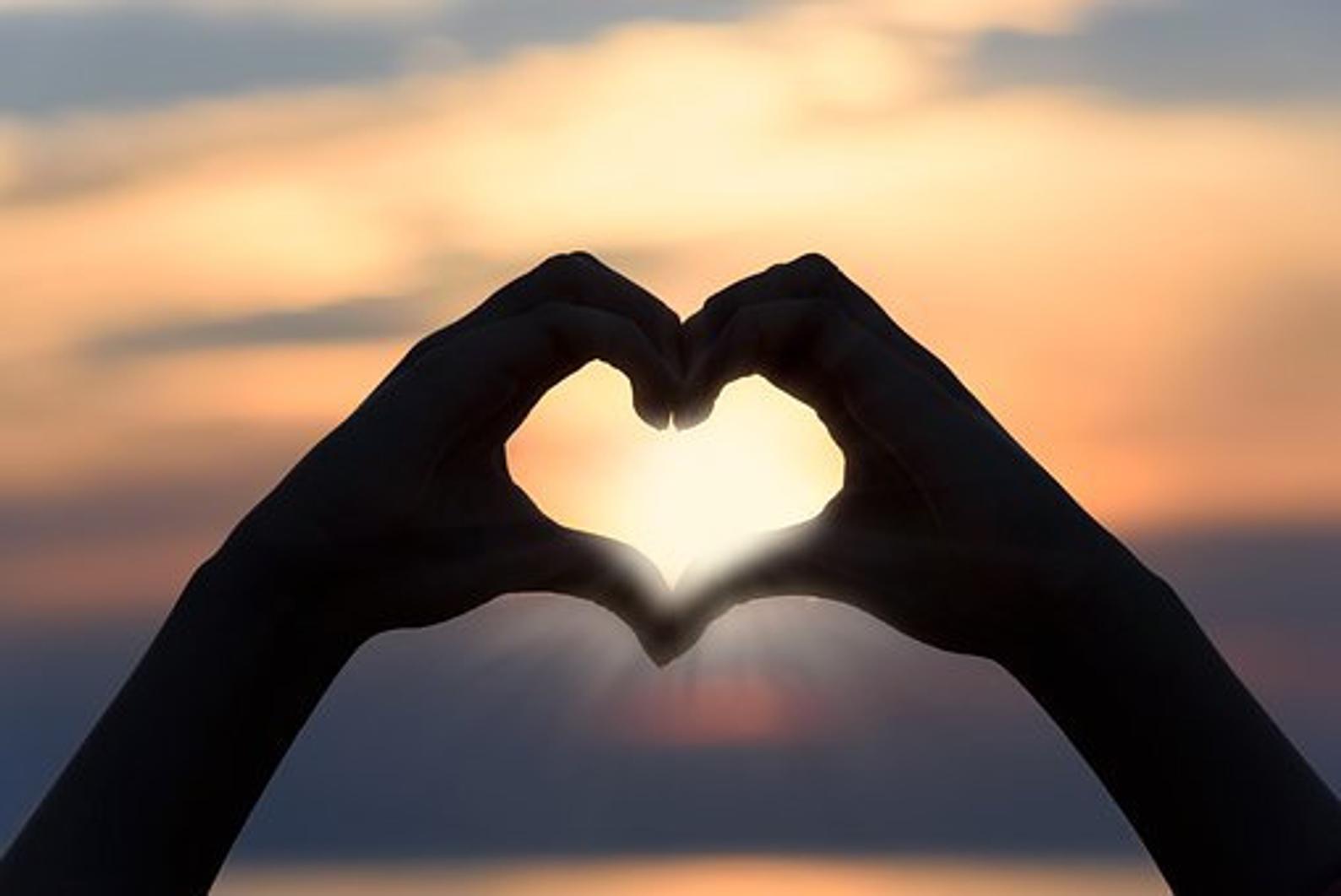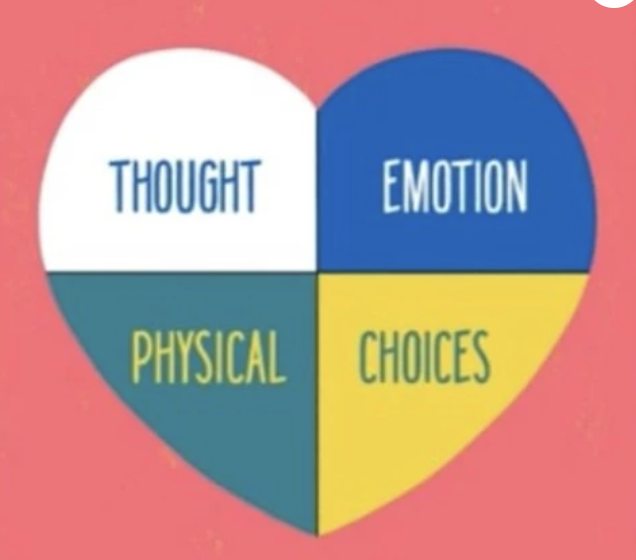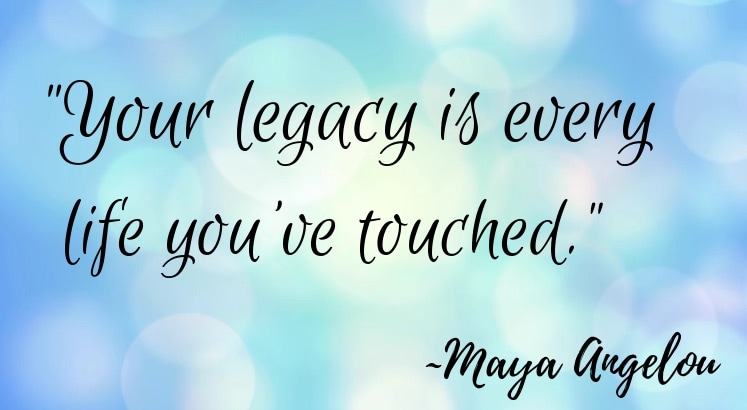A Valentine’s Note from JCC: Songs and poems about different kinds of love: for people, for the world, for each other (hopeful, sad, reflective, rowdy)
SONGS about LOVE:
- One Love by Bob Marley (reggae):https://youtu.be/g94A1R8xHcQ
- Your Love Keeps Lifting Me Higher by Jackie Wilson (rock):https://youtu.be/mzDVaKRApcg
- What a Wonderful World by Louis Armstrong (rock/blues): https://youtu.be/2nGKqH26xlg
- What the World Needs Now by Jackie DeShannon (ballad): https://youtu.be/YUaxVQPohlU
- Gentle On My Mind by Glen Campbell (country): https://youtu.be/ETkzK9pXMio
- You Raise Me Up performed by 12 Tenors (ballad): https://youtu.be/wWeVqw7CsIE
- You Can’t Hurry Love by the Supremes (rock): https://youtu.be/uZj032MNIx4
- I’ll Stand By You Always by Bruce Springsteen (rock): https://youtu.be/hwfPtkxF0aA
- Ain’t No Mountain High Enough by Marvin Gaye & Tammi Terrell (rock): https://youtu.be/-C_3eYj-pOM
- In My Life by The Beatles (rock ballad): https://youtu.be/YBcdt6DsLQA
- I Love Her by The Beatles (rock): https://youtu.be/5tc0gLSSU1M
- Like a Bridge Over Troubled Water by Simon & Garnkel: https://youtu.be/4G-YQA_bsOU
- Look At Us by Vince Gill (country): https://youtu.be/uSfjp1ky4Mw
- What Love Really Means by JJ Heller (Christian): https://youtu.be/PgGUKWiw7Wk

Blessing for the Brokenhearted — Jan Richardson
There is no remedy for love but to love more. – Henry David Thoreau
Let us agree
for now
that we will not say
the breaking
makes us stronger
or that it is better
to have this pain
than to have done
without this love.
Let us promise
we will not
tell ourselves
time will heal
the wound,
when every day
our waking
opens it anew.
Perhaps for now
it can be enough
to simply marvel
at the mystery
of how a heart
so broken
can go on beating,
as if it were made
for precisely this—
as if it knows
the only cure for love
is more of it,
as if it sees
the heart’s sole remedy
for breaking
is to love still,
as if it trusts
that its own
persistent pulse
is the rhythm
of a blessing
we cannot
begin to fathom
but will save us
nonetheless.From The Cure for Sorrow: A Book of Blessings for Times of Grief
© Jan Richardson (Wanton Gospeller Press, 2016). janrichardson.com
Beatitudes for Those Who Love —
This prayer-poem is by Rev. Maren Tirabassi.
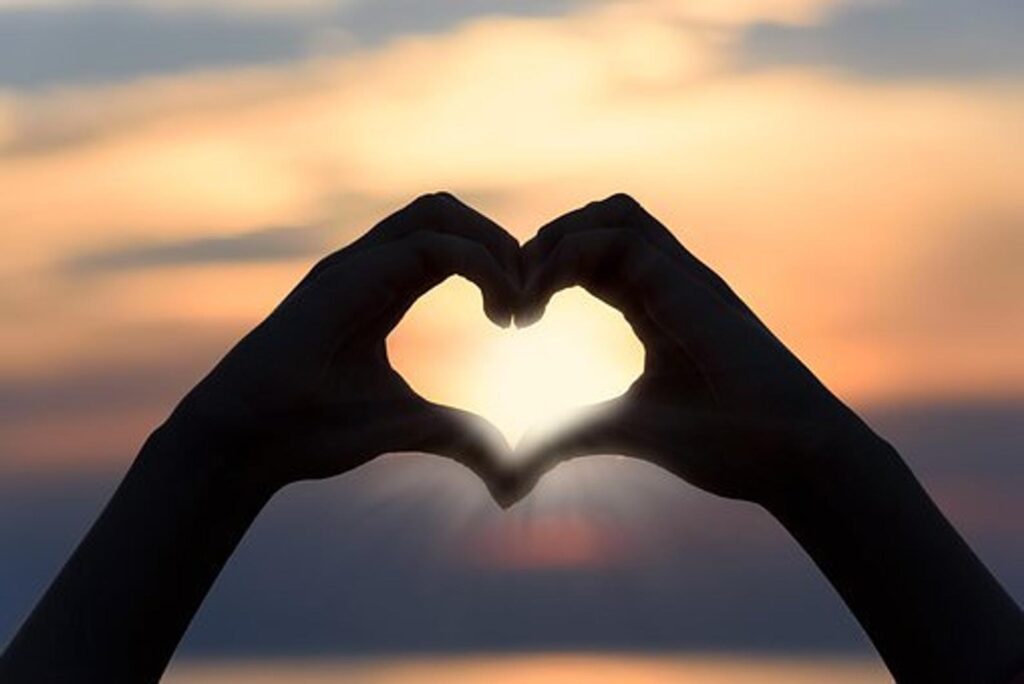
For Valentine’s Eve, Luke’s Beatitudes
Blessed are you who are poor
with no pink greeting cards or chocolate,
because you love someone with dementia –
for God remembers enough for both of you.
Blessed are you who are hungry for a love
forbidden by family or culture,
by law or religion,
by damage sustained in heart or spirit,
or by anyone who tears your family apart at a border–
because God promises you the taste of kisses.
Blessed are you who are shunned or bullied
in person and online for your body or your abilities,
for you will have a day
when you will see yourself in a mirror
and laugh with joy at how God made you beautiful.
Blessed are you when someone
assumes the fact that you didn’t marry
means you don’t know about love,
or when they call a child you cherish –
“just a foster kid,”
or bar the way of the therapy dog
who holds your heart together,
because your wounds do not fit
their definitions,
or turn you away in tears
from an ex-spouse’s visiting hours.
Re-joy in that day, for you understand
far more than most ever will.
But woe to you who hoard a loving family,
rather than sharing it with the lonely,
for you are consoled now.
Woe to you who expect life
to be all honeymoon,
for you won’t be resilient to disappointment.
Woe to you who laugh at anyone
who is unloved,
or whose love is dismissed –
for you will never be able to take it back
when the tears in your life teach you wisdom.
Woe to you when all congratulate
your penmanship or tech savvy in life,
but you forget the teacher
who once told you to make
a Valentine, not just for those like you,
but for everyone in class,
no, not the teacher in second grade –
the one two thousand years ago.
+++
Rev. Maren C. Tirabassi
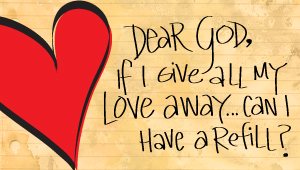
POEM — Maya Angelou
We, unaccustomed to courage
exiles from delight
live coiled in shells of loneliness
until love leaves its high holy temple
and comes into our sight
to liberate us into life.
Love arrives
and in its train come ecstasies
old memories of pleasure
ancient histories of pain.
Yet if we are bold,
love strikes away the chains of fear
from our souls.
We are weaned from our timidity
In the flush of love’s light
we dare be brave
And suddenly we see
that love costs all we are
and will ever be.
Yet it is only love
which sets us free.
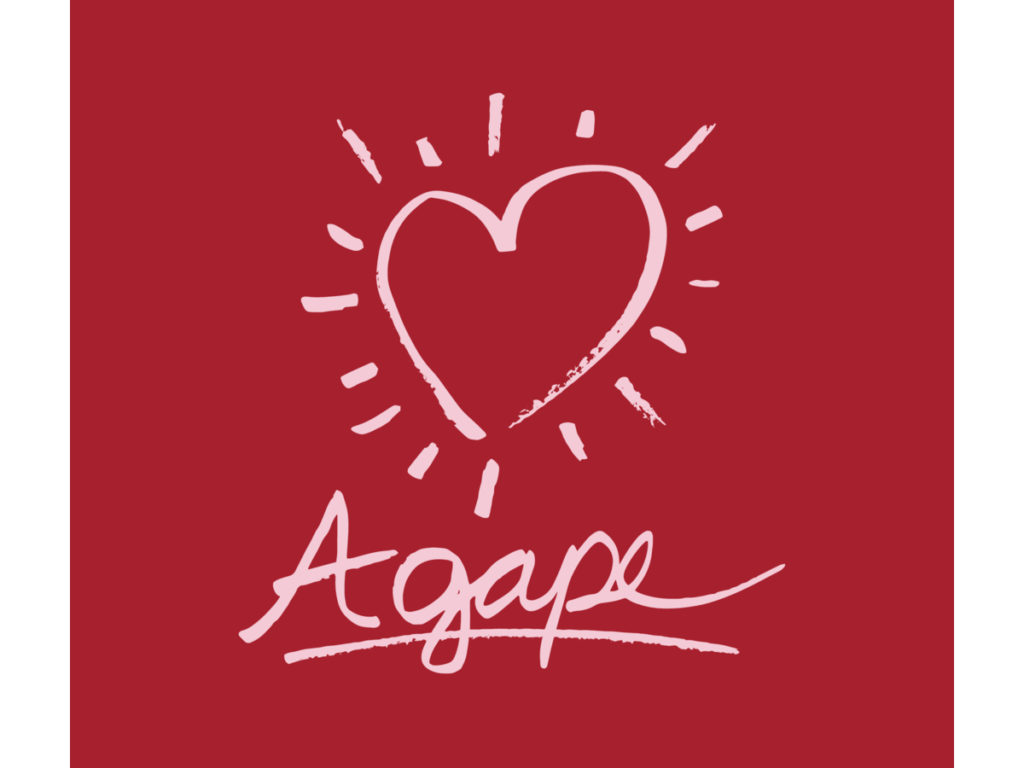
The Dance— Wendell Berry
I would have each couple turn,
join and unjoin, be lost
in the greater turning
of other couples, woven
in the circle of a dance,
the song of long time flowing
over them, so they may return,
turn again in to themselves
out of desire greater than their own,
belonging to all, to each,
to the dance, and to the song
that moves them through the night.
What is fidelity? To what
does it hold? The point
of departure, or the turning road
that is departure and absence
and the way home? What we are
and what we were once
are far estranged. For those
who would not change, time
is infidelity. But we are married
until death, and are betrothed
to change. By silence, so,
I learn my song. I earn
my sunny fields by absence, once
and to come. And I love you
as I love the dance that brings you
out of the multitude
in which you come and go.
Love changes, and in change is true.
Lev/Heart as reflected in the Jewish prayer known as the Shema: home of your intellect, emotions, and discernment and decision-making, integrating body-mind-spirit
There is a candle in your heart, ready to be kindled.
There is a void in your soul, ready to be filled.
You feel it, don’t you? ― Rumi
We can reject everything else: religion, ideology, all received wisdom. But we cannot escape the necessity of love and compassion. This, then, is my true religion, my simple faith. In this sense, there is no need for temple or church, for mosque or synagogue, no need for complicated philosophy, doctrine, or dogma. Our own heart, our own mind, is the temple. The doctrine is compassion. Love for others and respect for their rights and dignity, no matter who or what they are: ultimately these are all we need. — Dalai Lama
Sometimes the love of God is 12 inches from being real, the distance from the head to the heart. — David Ivey
In the Bible, however, heart is not a symbol. It isn’t an internal organ in your body either… Heart is your conscience. It’s the status of your deepest feelings. It’s the truth of who you are. — Sarah Fisher
Which brings us all the way back to the Shema. Every day God’s people are called to devote to God their body and mind, their feelings and desires, their future and their failures. This is what it means to Love the lord your God with all your heart. — The Bible Project
Everybody has all three centers (head, heart, moving) in them… It’s only when you have balanced the three centers—kinesthetic moving center, emotional center, and intellectual center—and integrated them that you become conscious. — Cynthia Bourgeault
SONGS about LEV- HEART
- Shema by Misha Goetz & Shae Wilbur (Jewish contemporary): https://youtu.be/81HSXFtYMRs
- Lev Tahor-Pure Heart by Sarah Lieberman (Hebrew): https://youtu.be/UoTPtfrjztQ
- Yachad (Together) Lev el Lev (Heart to Heart) by World WIZO (Hebrew): https://youtu.be/-3Cuucch_Fs
SONGS about HEART
- Straight from the Heart by Bryan Adams (rock): https://youtu.be/-ebtjgK8NNU
- Heart of Gold by Crosby, Stills, Nash & Young (country/folk rock): https://youtu.be/YtNjTmSHltQ
- Here’s My Heart by Casting Crowns (Christian): https://youtu.be/qkSBmRAVXNc
- Follow Your Heart by the Scorpions (rock): https://youtu.be/tMui4IVW0BM
- Closer to the Heart by Rush (rock): https://youtu.be/kyhW2v0NDM0
- I Cross My Heart by George Strait (country): https://youtu.be/3IUlCNqAKKA
- Rebel Heart by Lauren Daigle (Christian): https://youtu.be/sufQX7NSX2k
- How Can We See That Far by Amy Grant (country/pop): https://youtu.be/nz-hXEKwVmw
- My Heart Will Go On by Celine Dion (ballad): https://youtu.be/WNIPqafd4As
- Heart Full of Soul by Yardbirds (rock): https://youtu.be/pM1qZBFiOLU
- You’re In My Heart by Rod Stewart (ballad): https://youtu.be/Hf6ng1Hsb7I
- Whole Heart by Hillsong (Christian): https://youtu.be/eRUM70CPYls
- Owner of a Lonely Heart by YES (rock): https://youtu.be/SVOuYquXuuc
- Don’t Go Breakin’ My Heart by Elton John (rock): https://youtu.be/z0qW9P-uYfM
- Groove Is In the Heart by Deelite (rock): https://youtu.be/y5tkqM2LS_w
- Total Eclipse of the Heart by Bonnie Tyler (rock): https://youtu.be/lcOxhH8N3Bo
- Listen To Your Heart by Roxette (rock): https://youtu.be/yCC_b5WHLX0
- Heart of God by Hillsong (Christian): https://youtu.be/pRSC06T4lKs
- Queen of Hearts by Juice Newton (rock): https://youtu.be/P0DK-0fIKCw
There’s a morning when
presence comes over your soul.
You sing like a rooster
in your earth-colored shape.
Your heart hears and,
no longer frantic,
begins to dance.
At that moment,
soul reaches total emptiness.
Your heart becomes Mary,
miraculously pregnant,
and body like a two-day-old
Jesus says wisdom words.
Now the heart, which is the
source of your loving,
turns to universal light,
and the body picks up
the tempo and elegance
of its motion.
Where Shams-i Tabriz walks
the footprints become notations of music
and holes you fall through into space.
~~ Rumi
Blessing for a Whole Heart —Jan Richardson
You think if you could just imagine it,that would be a beginning;
that if you could envision what it would look like,
that would be a step toward a heart made whole.
This blessing is for when you cannot imagine.
This is for when it is difficult to dream of what could lie beyond
the fracture, the rupture, the cleaving
through which has come a life you do not recognize as your own.
When all that inhabits you feels foreign,
your heart made strange and beating
a broken and unfamiliar cadence,
let there come a word of solace,
a voice that speaks into the shattering,
reminding you that who you are is here,
every shard somehow holding
the whole of you that you cannot see
but is taking shape even now,
piece joining to piece in an ancient,
remembered rhythm that bears you not toward restoration,
not toward return—
as if you could somehow become unchanged—
but steadily deeper into the heart
of the one who has already
dreamed you complete.
Resources:
- Lev/Heart by the Bible Project (animated video): https://bibleproject.com/explore/video/lev-heart/
- Shema in ASL by Rabbi Darby Jared Leigh https://www.youtube.com/watch?v=MDUU4vy2tmM
- Lev study: https://youtu.be/a-lN89Rz1Ig
- Lev/Heart (animated video): https://www.youtube.com/watch?v=vx2fj-VKSHo
LEV-HEART REFLECTIONS
The Hebrew word often translated “heart” is the word lev, לב. Although lev is frequently translated as “heart,” it should be rendered “mind.” This information is actually very important for accurate reading of many Biblical texts. —Berkowitz, MBT Kids
In the Bible the heart is considered the seat of life or strength. Hence, it means mind, soul, spirit, or one’s entire emotional nature and understanding. The heart also is the primary source of such bad behavior as adultery, hatred, lust, mischief, pride, and rebellion as well as such neutral or good behavior as desire, doubt, fear, gladness, love, obedience, and sorrow. The heart is the organ that is said to have the ability to reason, question, meditate, motivate, and think. All of these mental processes in today’s world are normally associated with one’s mind or brain and not the heart (except metaphorically). God or the Lord is described as being able to know, search, enlighten, open, recreate, examine, strengthen, and establish one’s heart — not the mind. One can have a clean, contrite, perfect, pure, or wise heart, but those qualities are not biblically attributed to the mind. —Dr. Lorence G. Collins
“Heart” does not mean the emotions (though it includes our emotions). It refers to our inner orientation, the core of our being. This kind of “heart” is what Jesus was referring to when he told us to store up treasures in heaven instead of on earth, “for where your treasure is, there also will your heart be.” (Matthew 6:21) This is the “heart” Jesus was worried about when he said “from the heart come evil thoughts, murder, adultery, unchastity, theft, false witness, blasphemy.” (Matthew 15:19) Jesus observed that our heart can get untethered from our actions: “This people honors me with their lips, but their hearts are far from me.” (Matthew 15:8) Heart in this sense—the totality of our response—is the concern of the Spiritual Exercises. This is the ancient meaning of “heart” in biblical usage, but we actually retain traces of this meaning in contemporary English. When we say to someone “my heart goes out to you,” we mean something more than a feeling of concern. If said sincerely, it communicates a sense of solidarity with someone. It means more than “I understand” (our intellect). It means more than “I sympathize” (our feelings). It means something like, “I stand with you in this.” It is an expression of a fundamental choice. — David L. Fleming, SJ.
… biblical authors talk about the heart in many other ways that may seem strange to modern readers. That’s because the Israelites had no concept of the brain or any word for it. So they imagined that all of a human’s intellectual activity takes place in the heart. For example, you know with your heart; 5your heart is where you understand and make connections. In the book of Proverbs, wisdom dwells in the heart, and your heart is what you use to discern between truth and error. … So the heart is where you think and make sense of the world, but it does more. In the Bible, the heart is also where you feel emotions. You feel pain in your heart,… You also experience fear in your heart… Your heart can even be depressed.But on the flip-side, your heart is where you experience joy. … So the heart is the generator of physical life and also your intellectual and emotional life, but there’s more. In biblical Hebrew the heart is where you make choices motivated by your desires …Your heart is where your affections are centered; they’re called “the desires of your heart,” and if you really want something, you’ll go after it. …So then, in the Bible, the heart is the center of all parts of human existence.— Bible Project
This teaches us that the heart, that the love that it represents, can thrive, can flourish, only when there is a totality in connection. The Jewish heart, true love, represents a mind-to-mind, face-to-face, eye-to-eye, body-to-body, soul-to-soul connection. —Sara Esther Crispe
The Hebrew word for this part of us is “Levar” or “Lev – לב” for short. Although lev is frequently translated as “heart,” it really could also be translated “mind”. This word does not refer to the organ that pumps blood but rather it has Biblical meaning which most often refers to the control center of our lives. Today we might refer to the mind as the place where decisions are made. In the Bible Lev literally means the inner man, mind, will, heart, soul, understanding. It is where we use what we know or understand, where we have thoughts and feelings in order to discern right from wrong. Lev also refers to feelings like joy, sadness, happiness, love. At times we make decisions based on these fleeting parts of us. — Chapel Hill Kids
In Hebrew, the holy language that holds the secret of all creative power, the word “heart” is written לֵב, a lamed (ל) followed by a bet (ב). Rabbi Abraham Abulafia, one of the greatest medieval Kabbalists explained that the word for “heart” in Hebrew, alludes to the physical form of the human heart: two (the numerical value of the letter bet-ב) lamed’s (ל) face-to-face. The Heart Understands Knowledge It is stated in the Midrash (Otiot d’Rabbi Akiva) that the name of the Hebrew letter lamed stands for Lev Meivin Da’at: “the heart that understands knowledge.” The same idea is expressed in the form of the letter lamed (ל), which depicts the aspiration of the heart to ascend to the highest level of consciousness, the understanding of knowledge. Knowledge (da’at) is the power of the soul which forges the connection between man and God, between man and his fellow, and especially between husband and wife… — inner.org
… the mistranslation of Lev as the figurative “heart” is replaced with Mind—the core of our mental reality…
- a) the non-figurative “lev” never meant the anatomical heart;
- (b) the figurative use of lev is, first and foremost, as the seat of rational thought, awareness, intent and reflection; and
- (c) by correcting the mistranslation of lev (replacing the excitable “heart” with the perceptive “mind”) the bible’s fundamental teaching about the soul, prophecy and transformation emerges dazzlingly from the text.
— Ethan Dor-Shav
BODY-MIND-SPIRIT INTEGRATION
Wisdom is a way of knowing that goes beyond one’s mind, one’s rational understanding, and embraces the whole of a person: mind, heart, and body. These three centers must all be working, and working in harmony, as the first prerequisite to the Wisdom way of knowing. —Cynthia Bourgeault
You don’t have a soul. You are a Soul. You have a body. — C.S. Lewis
We see in Jesus that a physical life is a spiritual life. — Nadia Bolz-Weber
The secret of health for both mind and body is…live the present moment wisely and earnestly. — Gautama Buddha
All prayer disciplines are somehow trying to get mind, heart, and body to work as one, which entirely changes one’s consciousness. “The concentration of attention in the heart—this is the starting point of all true prayer,” wrote St.Theophan the Recluse (1815–1894,) a Russian monk, bishop, and mystic. Apart from Love, any other “handler” of your experience, including the rational mind or merely intellectual theology, eventually distorts and destroys the beauty and healing power of Wisdom. — Fr. Richard Rohr
You need the practice of mindfulness to bring your mind back to the body and establish yourself in the moment. If you are fully present, you need only make a step or take a breath in order to enter the kingdom of God. And once you have the kingdom, you don’t need to run after objects of your craving, like power, fame, sensual pleasure, and so on. Peace is possible. Happiness is possible. And this practice is simple enough for everyone to do. — Thich Nhat Hanh
Whether you are sick or well, lovely or irregular, there comes a time when it is vitally important to your spiritual health to drop your clothes, look in the mirror, and say, ‘Here I am. This is the body-like-no-other that my life has shaped. I live here. This is my soul’s address. After you have taken a good look around, you may decide that there is a lot to be thankful for, all things considered. — Barbara Brown Taylor
The main concept behind the mind-body-spirit connection is that we are all more than just our thoughts. We are also our bodies, our emotions, and our spirituality … all these things combine to give us identity, determine our health, and make us who we are. — Cooper University
What is saving my life now is the conviction that there is no spiritual treasure to be found apart from the bodily experiences of human life on earth. My life depends on engaging the most ordinary physical activities with the most exquisite attention I can give them. My life depends on ignoring all touted distinctions between the secular and the sacred, the physical and the spiritual, the body and the soul. What is saving my life now is becoming more fully human, trusting that there is no way to God apart from real life in the real world. ― Barbara Brown Taylor
Man has no Body distinct from his Soul; for that called Body is a portion of Soul discerned by the five Senses, the chief inlets of Soul in this age. — William Blake
Our ‘ministry’ is Word and Sacrament —everything else flows from that. We see a need, we fill it. We f*** up, we say sorry. We ask for grace and prayers when we need them (a lot). Jesus shows up for us through each other. We eat, we pray, we sing, we fall, we get up, repeat. Not that complicated. ― Nadia Bolz-Weber
Brene Brown’s 10 Guideposts for Wholehearted Living are as follows:
- Cultivating Authenticity and Letting Go of What Other People Think
- Cultivating Self-Compassion and Letting Go of Perfectionism
- Cultivating Your Resilient Spirit, Letting Go of Numbing and Powerlessness
- Cultivating Gratitude and Joy, Letting go of Scarcity and Fear of the Dark
- Cultivating Intuition and Trusting Faith, Letting Go of the Need for Certainty
- Cultivating Creativity and Letting Go of Comparison
- Cultivating Play and Rest, Letting Go of Exhaustion as a Status Symbol and Productivity as Self-Worth
- Cultivating Calm and Stillness and Letting Go of Anxiety as a Lifestyle
- Cultivating Meaningful Work, Letting Go of Self-Doubt and Supposed-To
- Cultivating Laughter, Song, and Dance. And Letting Go of Cool and Always in Control
Each guidepost is like a coin with two sides. On one side, it shares what to cultivate. And on the other, it instructs what to let go of. The two work hand-in-hand.
Meditations on treasures & legacies: what we cherish — themes from Hosea & Luke.
Seek not greater wealth, but simpler pleasure; not higher fortune, but deeper felicity. — Mahatma Gandhi
You are searching the world for treasure, but the real treasure is yourself. — Rumi
When he returned home to France, [Lafayette] lived on his big estates and did very well. He was in the same social class as the rich man in Jesus’ parable … In 1783, after a poor harvest, Lafayette’s workers were still able to fill his barns with wheat. “The bad harvest has raised the price of wheat,” said one of his workers. “This is the time to sell.” Lafayette thought about the hungry peasants in the surrounding villages. “No,” he replied, “this is the time to give.” — A story about the Marquis de Lafayette, who helped the American colonists during our War of Independence from Britain, 18th century (published as part of UCC commentary on Luke 12)
Questions on which to reflect about themes from Hosea 11 & Luke 12:
- What are idols? (PS: Rev Gail says they are: obsessions, addictions or passions that are out of balance in our lives because we focus time and treasures in ways that prevent us from putting energy and love where it belongs: with Godself, in just and compassionate human relationships [family & neighbors as defined by Christ] and into sustainable connection to creation.)
- What idols has faith and ethics — holy Love — helped us give up?
- What idols still have a hold in our individual and communal lives?
… the parable … doesn’t warn against money, wealth, or material abundance … warns against greed, about the insatiable feeling of never having enough. And the parable … illustrates this. The farmer’s problem isn’t that he’s had a great harvest, or that he’s rich, or that he wants to plan for the future. The farmer’s problem is that his good fortune has curved his vision so that everything he sees starts and ends with himself. — David Lose
Treasures: What Do We Cherish?
Stories hold us together. Stories teach us what is important about life, why we are here and how it is best to behave, and that inside us we have access to treasure, in memories and observations, in imagination. — Anne Lamott
I find that it’s essential during the day to actually note when I feel happiness or when something positive happens, and begin to cherish those moments as precious. Gradually we can begin to cherish the preciousness of our whole life just as it is, with its ups and downs, its failures and successes, its roughness and smoothness. — Pema Chodron
Earth provides enough to satisfy every man’s need, but not every man’s greed. — Mahatma Gandhi
Ordinary riches can be stolen, real riches cannot. In your soul are infinitely precious things that cannot be taken from you. — Oscar Wilde
It occupies me … to exhaust the fund of sentimental treasure, which the Divine spirit poured into my mind. it was, indeed, a time of refreshing from the presence of the Lord. — Zilpah Elaw
… the problem isn’t … money but our penchant to look to money, rather than to God and each other, for life. — David Lose
I’d like to live as a poor man with lots of money. — Pablo Picasso
There is more in you of good than you know, child of the kindly West. Some courage and some wisdom, blended in measure. If more of us valued food and cheer and song above hoarded gold, it would be a merrier world. — J.R.R. Tolkien, The Hobbit
There is no wealth but life. — John Ruskin, The King of the Golden River
Wealth consists not in having great possessions, but in having few wants. — Epictetus
He who is not contented with what he has, would not be contented with what he would like to have. — Socrates
He who is greedy is always in want. — Horace
To be wealthy and honored in an unjust society is a disgrace. — Confucius, The Analects
Wherever we are, any time, we have the capacity to enjoy the sunshine, the presence of each other, the wonder of our breathing. — Thich Nhat Hanh
Legacy: What Do We Leave Behind?
Are we really planning prudently? What gives our life meaning now, and what will give it meaning then? — Culpepper
At the end, all that’s left of you are your possessions. Perhaps that’s why I’ve never been able to throw anything away. Perhaps that’s why I hoarded the world: with the hope that when I died, the sum total of my things would suggest a life larger than the one I lived. — Nicole Krauss, The History of Love
Fear of death increases in exact proportion to increase in wealth. — Ernest Hemingway
God’s people are not to accumulate stuff for tomorrow but to share indiscriminately with the scandalous and holy confidence that God will provide for tomorrow. Then we need not stockpile stuff in barns or a 401(k), especially when there is someone in need. — Shane Claiborne, Red Letter Revolution: What If Jesus Really Meant What He Said?
It’s never a question of skin pigmentation. It’s never a question of just culture or sexual orientation or civilization. It’s what kind of human being you’re going to choose to be from your mama’s womb to the tomb and what kind of legacy will you leave. — Cornel West
I get asked a lot about my legacy. For me, it’s being a good teammate, having the respect of my teammates, having the respect of the coaches and players. That’s important to me. — Peyton Manning
Humanity’s legacy of stories and storytelling is the most precious we have. All wisdom is in our stories and songs. A story is how we construct our experiences. — Doris Lessing
I’m not interested in my legacy. I made up a word: ‘live-acy.’ I’m more interested in living. — John Glenn
I think the whole world is dying to hear someone say, ‘I love you.’ I think that if I can leave the legacy of love and passion in the world, then I think I’ve done my job in a world that’s getting colder and colder by the day. — Lionel Richie
